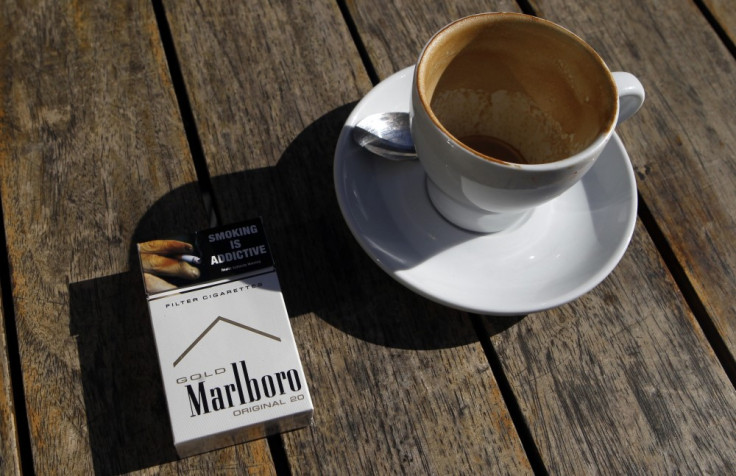Tobacco Companies Could Lose Investment Protection Rights in Pacific Trade Deal

Tobacco companies may be excluded from the investor protection chapter of the free trade agreement between the US and 11 other Pacific nations, according to reports.
A Reuters source "who has knowledge of the negotiations" said the US is to suggest that the tobacco industry should not have the right to sue governments for introducing anti-smoking healthcare regulation, as part of the Trans-Pacific Partnership (TPP).
There are a number of high-profile cases currently underway, whereby tobacco companies are using the investor-state dispute settlement (ISDS) clause of existing free trade agreements to challenge government rulings that damage their profits.
In Australia, Philip Morris International (PMI), the Swiss-based manufacturer of Marlboro, is suing the government for introducing plain packaging. In Uruguay, it is pursuing the government in the courts over anti-smoking legislation (for example, the 'single presentation' requirement that prohibits marketing more than one tobacco product under each brand and the requirement that health warnings cover 80% of a cigarette pack).
In both cases, PMI says this damages the company's brand and trademarks.
TPP negotiations are ongoing in Australia, with the host nation joined at the table by the US, Japan, Canada, Singapore, Malaysia, Mexico, Vietnam, Peru, Chile, Brunei and New Zealand.
Reuters reported that the US is considering tabling the idea at this round of talks and the reaction will be watched closely from Europe, where ISDS is forming a key part of the debate around the Transatlantic Trade and Investment Partnership (TTIP), the free trade agreement being negotiated between the EU and US.
Today (22 October), the new European Commission was voted in by the European Parliament, with the President and Trade Commissioner both making strong statements on ISDS.
Jean-Claude Juncker, the commission's new president, said in a parliamentary address in Strasbourg this morning that his commission "will not accept that the jurisdiction of courts in the EU member states be limited by special regimes for investor-to-state disputes" – suggesting that he is keen to move away from the private tribunal scenario that typically defines ISDS hearings.
He has tasked Frans Timmermans, the commission's first vice-president, with advising him on the issue, saying: "There will be no investor-to-state dispute clause in TTIP if Frans does not agree with it too."
This would seem to imply that Juncker supports the kind of ISDS included in the free trade agreement with Canada, which has been finalised but not ratified. The Comprehensive Economic and Trade Agreement (Ceta) included a reformed ISDS clause, whereby the European Commission is thought to have negotiated safeguards to ensure ISDS could not be used to block government decisions over national legislation.
The culture and airline sectors are set to be exempt from ISDS in Ceta, meaning that there would be some precedent should the US decide to negotiate the exclusion of tobacco in both TPP and TTIP.
Cecilia Malmström, the new trade commissioner, has sought to allay rumours of a dispute over ISDS with Juncker. Taking to social media, she said there are "no differences in the commission on ISDS", saying she looked forward to addressing the issue with Juncker and Timmermans.
She added: "If it is to be included in TTIP, ISDS must indeed be reformed".
No differences in the Commission on ISDS. I look forward to address the issue w Pres @JuckerEU & VP Timmermans. If it is to be included...
— Cecilia Malmström (@MalmstromEU) October 22, 2014...in TTIP, ISDS must indeed be reformed. Here’s what I said in my hearing in @europarl_en on the issue:
http://t.co/mCfLqXNOrL
— Cecilia Malmström (@MalmstromEU) October 22, 2014Timmermans will oversee regulatory reform within the commission and is set to be given the authority to slash red tape and rework subsidiarity (whereby decisions are taken on a national government level rather than centrally).
In his address, Juncker announced that Timmermans – a Dutch Labour politician – will also have "horizontal responsibility for sustainable development".
It led one MEP to remark to IBTimes UK that he is "being given everything that seems to be causing the commission trouble".
Speaking earlier this year on TTIP, Timmermans said: "It is very simple, if we are able to see TTIP for what it is: not a free trade agreement. TTIP is a geostrategic agreement. It is a political agreement. It should not be left up to people who know everything about the way you slaughter chickens. It should be something our political leaders should take up and decide on soon.
"When you have TTIP in place, it will change the nature of the game globally. Because then the United States and Europe will set the rules of the game, and the others will follow suit, including China, Japan and others."
© Copyright IBTimes 2025. All rights reserved.






















